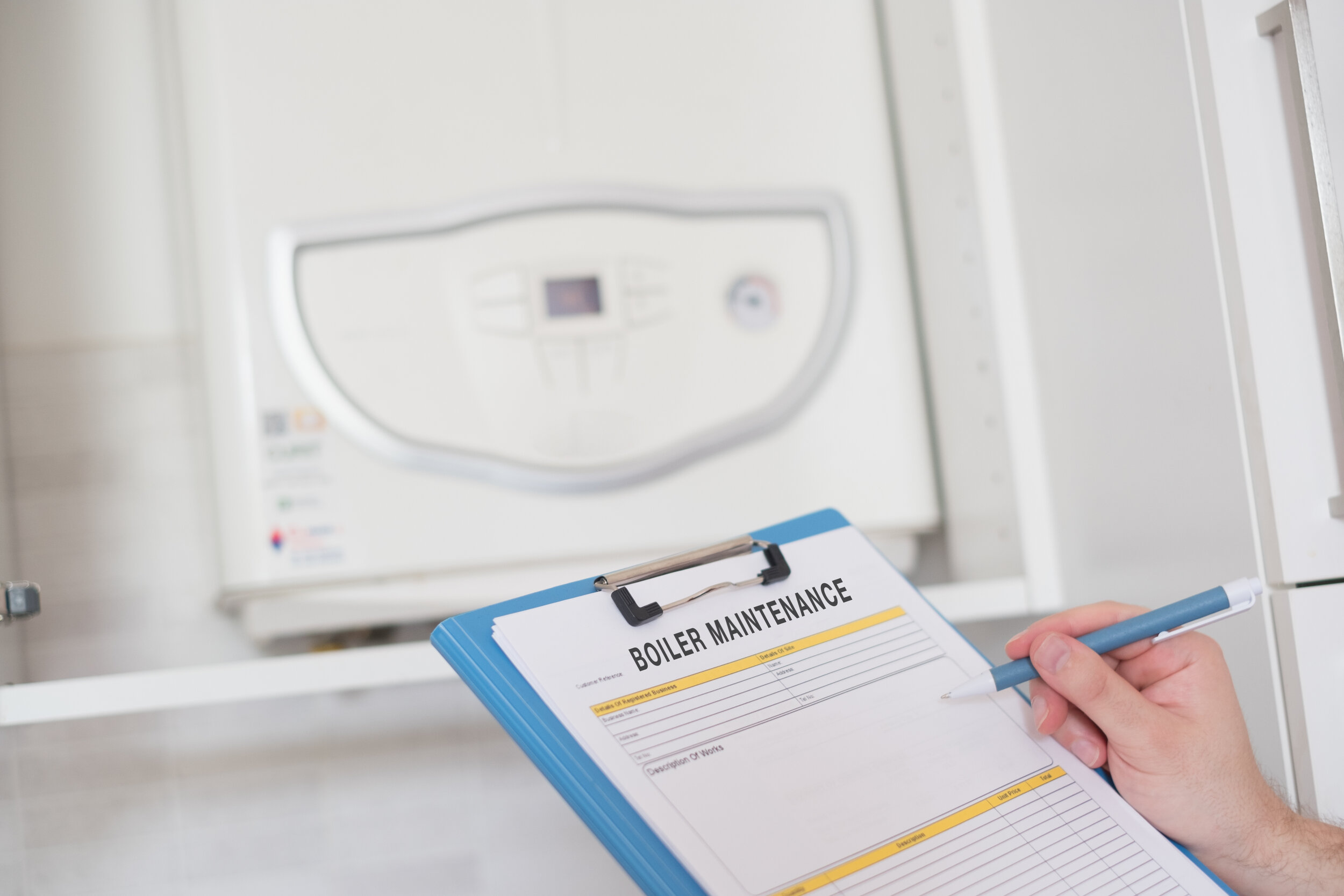5 Essential Boiler Maintenance Tips for Homeowners
/After becoming a homeowner, you'll likely face an abundance of home maintenance duties that you didn’t deal with when renting. Some of the most critical household errands involve boiler care. It can seem daunting knowing where to start with maintaining this appliance, but you'll quickly get the hang of it once you're familiar with the main tasks.
If you do need to upgrade your appliance, new boiler cost is something to factor into your budget when buying a new home. They don’t need to be very expensive but you also want to think about choosing a product that will last for years and find a reputable firm for boiler installation.
As Heatable mentions, it might be tempting to just pay for boiler repairs as an attempt to save money, but temporary fixes will often cost you more long-term as you will eventually have to replace the boiler.
Many homeowners forget to upkeep their boilers and wait for signs of wear-and-tear before checking it. However, this can cost you more if it breaks unexpectedly during winter and more importantly, can be extremely dangerous if you're unaware of any hazards that develop.
Here are five essential boiler maintenance tips that can help it reach the estimated lifespan of 15 years and prevent avoidable damages.
1) Read the manual
When you first move into the property or have a new boiler installed, become familiar with how the boiler operates. Reading the instruction manual will help you understand what is and isn't typical for your boiler, so you can detect any problems that arise. Also, ensure you fully understand how to operate the settings before doing so. Otherwise, you could be wasting energy if you accidentally set the temperature too high or time the heating to turn on when you aren't home.
2) Routine boiler service
Having your boiler serviced at least once a year is the most effective way of checking it’s functioning correctly. During the process, a gas safe registered engineer will conduct a visual inspection, and then remove, clean, and test the core boiler components.
Without annual services, your boiler could be running inefficiently and causing your energy bills to skyrocket without you knowing. As well as this, your boiler could suddenly stop working, leaving you without any hot water or heating.
An engineer will be able to alert you to any boiler parts that need replacing long before they become a health risk. Failing to get an annual service could also invalidate your warranty if it was included as a term.
If you do need to replace your boiler you can check costs on a boiler cover comparison site to give you a better idea of what’s involved.
Alternatively, if you want to protect yourself from unexpected breakdowns, there are companies such as First American Home Warranty, which offer yearly service contracts that protect your boiler or heating system should they need a repair or replacement. These can often provide that peace of mind, especially in winter when we rely on these appliances the most.
Credit: Unsplash.
3) Check boiler pressure
When boilers turn off sporadically or don't turn on at all, it's often related to the pressure level. A low pressure stops your boiler from heating the water, while a high pressure can cause heating system failures.
The boiler pressure is measured by a pressure gauge, which is either displayed digitally or by using a dial. The pressure level should be between 1 and 1.5 bars when the central heating is off. It’s normal for the pressure to increase to around 2 bars when the heating is on, or the boiler is active in general. Follow these steps to repressurise your boiler:
Turn the boiler off and leave to cool
Securely attach a filling loop
Open the valves to transfer cold mains water to the boiler
Close the valves once the pressure levels return to normal
Turn the boiler back on and press the reset button if required
Remove the filling loop
A high boiler pressure could indicate that the radiators need bleeding. Whereas, a leak could cause a low-pressure level, which should be addressed by a professional. If you keep experiencing problems with your boiler pressure, it may need repairing or maybe it's time to have a boiler replacement.
Credit: Unsplash.
4) Bleed radiators
When air becomes trapped inside radiators, it stops your central heating system from working smoothly and makes it difficult to heat your home. To determine whether this issue has occurred, check your radiators for cold spots and listen out for gurgling noises. Bleeding your radiators once a year can prevent this problem. Follow these steps to bleed the radiators:
Turn off the heating and wait for radiators to cool
Protect your flooring with towels
Attach the radiator bleed key to the bleed valve
Slowly turn the key anti-clockwise until you hear a hissing noise
When water starts to dribble, and air stops seeping out, quickly retighten the valve
Repeat this process on all radiators
Check you haven't released too much radiator water and caused the boiler pressure to dip.
5) Replace your boiler
Although conducting regular upkeep can preserve the quality of your boiler and prevent it from worsening unnecessarily, boilers can't stay healthy forever. However, practising boiler care will allow you to anticipate when it'll be time for an update. Getting a new boiler before it breaks enables you to keep your home toasty and factor the installation cost into your yearly budget.
It might be tempting to just pay for boiler repairs as an attempt to save money, but temporary fixes will often cost you more long-term as you will eventually have to replace the boiler.
If you aren't sure which boiler is most suitable for your home, BOXT provides a 'Find a boiler' tool to make this task much easier. The online service can also arrange the entire installation process.
Factoring these maintenance jobs into your annual schedule can stop your boiler from developing safety hazards, increasing energy bills, and malfunctioning abruptly. However, always seek assistance from a trained engineer if you aren't confident in conducting any boiler-related duties.
Disclosure: This is a collaborative post.




























